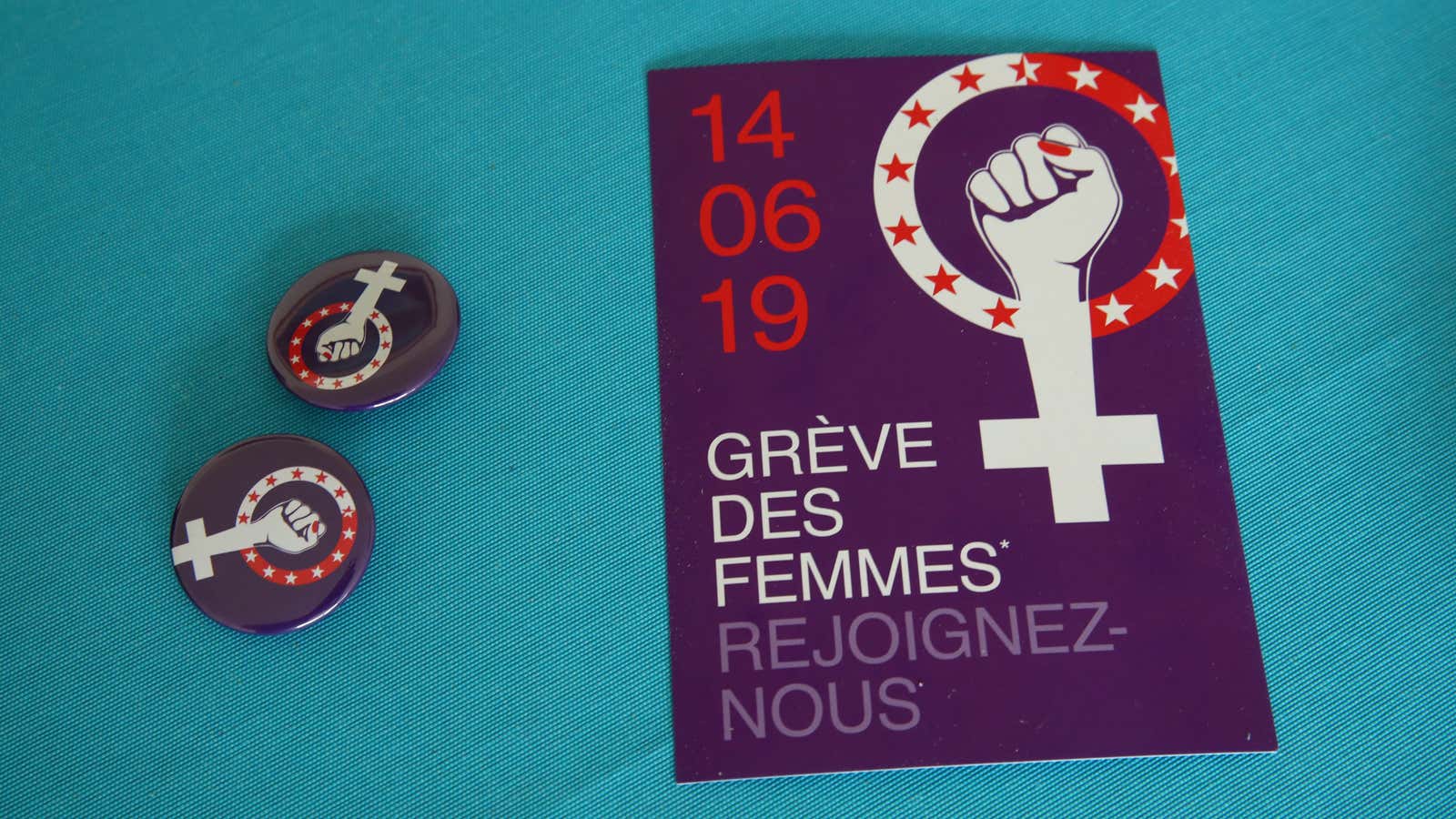Switzerland: Land of banks, watches, and gender inequality.
The world’s second richest country by per capita income is less so for women, who earn significantly less than their male peers. So on Friday, Swiss women will stage a strike under the banner of “Pay, time, respect!”
Switzerland ranks high when it comes to development markers, yet it falls behind other comparable countries in gender equality. Data published by the federal statistics office earlier this year show that men made 19.6% more than their female colleagues in the private sector in 2016. That amounts to an average 657 Swiss francs (about $659) more per month compared to women with similar qualifications.
The gap is growing, too. In 2014 it was slightly smaller, at 19.5%. In some cases, the disparity can be attributed to a lack of access to higher-ranking, better paying jobs. About two thirds of lower-income positions were held by women in 2016. But in 42.9% of the cases women were simply paid less to perform the same jobs that men do, according to the statistics agency.
The gap is bigger in managerial positions and varies by sector. For example, it’s 8.3% in the service industry, but goes up to 33.3% in the financial and insurance sectors. Women who work in the public sector earn 16.7% less than men.
Late last year, the Swiss parliament passed a law requiring fair pay and salary monitoring in companies with over 100 employees, but it will take time for its effects to be felt.
This is not the first time Swiss women strike. In 1991, they blocked trams in Zurich with a sit-in. This time, there will be actions around the country, coordinated by a Zurich-based group that is part of the global Women’s March network. The event is dubbed frauen strike, grève des femmes, sciopero delle donne, depending on the country’s area.
In Zurich, the plan is for women to gather in small groups and peacefully disrupt the activities of the city’s commercial center. Across Switzerland, there will also be movie screenings, rallies, and exhibitions of posters from the 1960s campaign for universal suffrage. It was only in 1971 that Swiss women were recognized the right to vote.
While job opportunities and salary equality are the most tangible issues, Swiss women also want to raise awareness on domestic violence and sexual harassment. According to recent surveys, over 22% of Swiss women 16 and older suffered from sexual assault, but only 10% reported it to the police. Nearly 60% reported being subject to harassment and unwanted touch.
